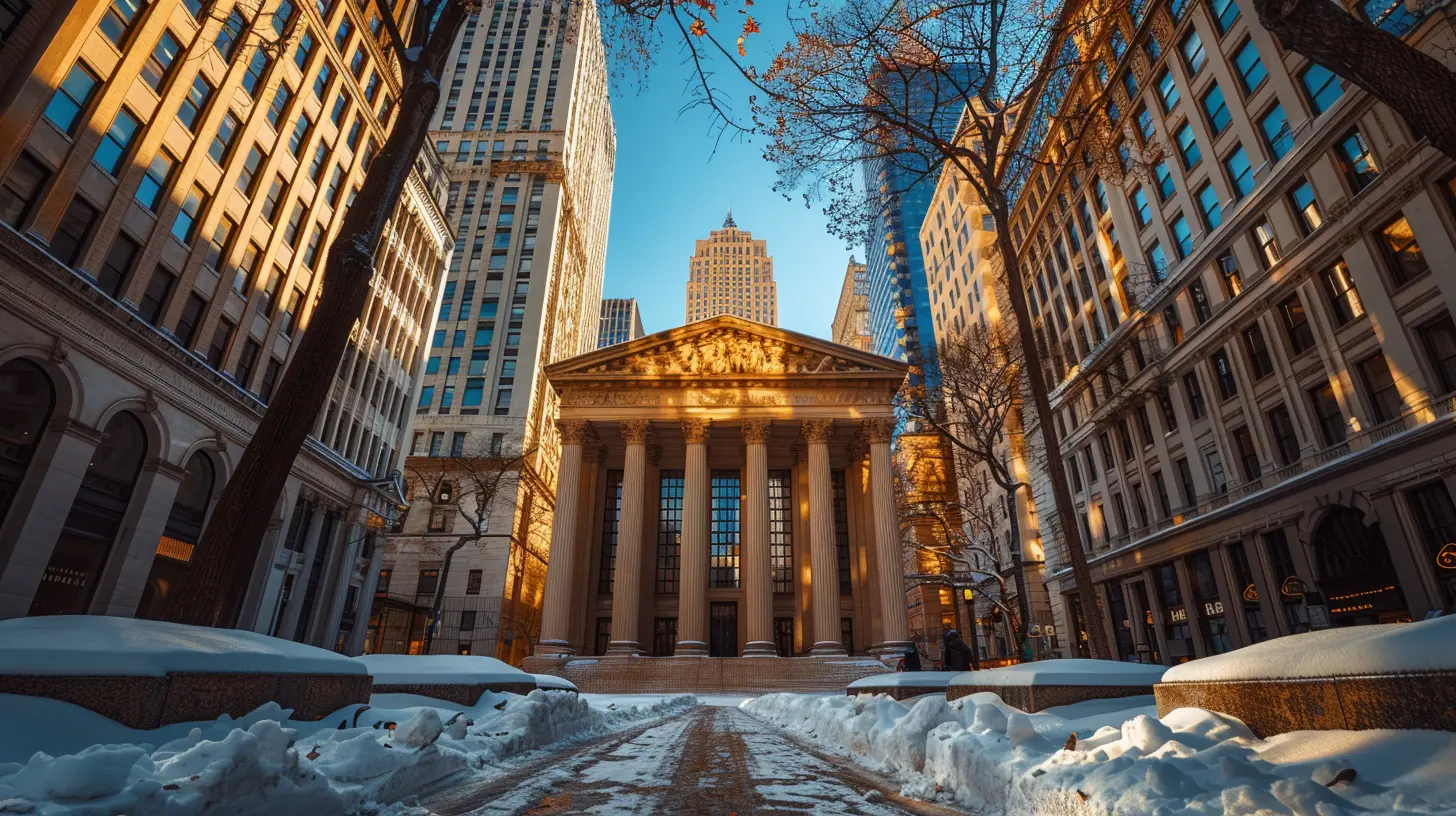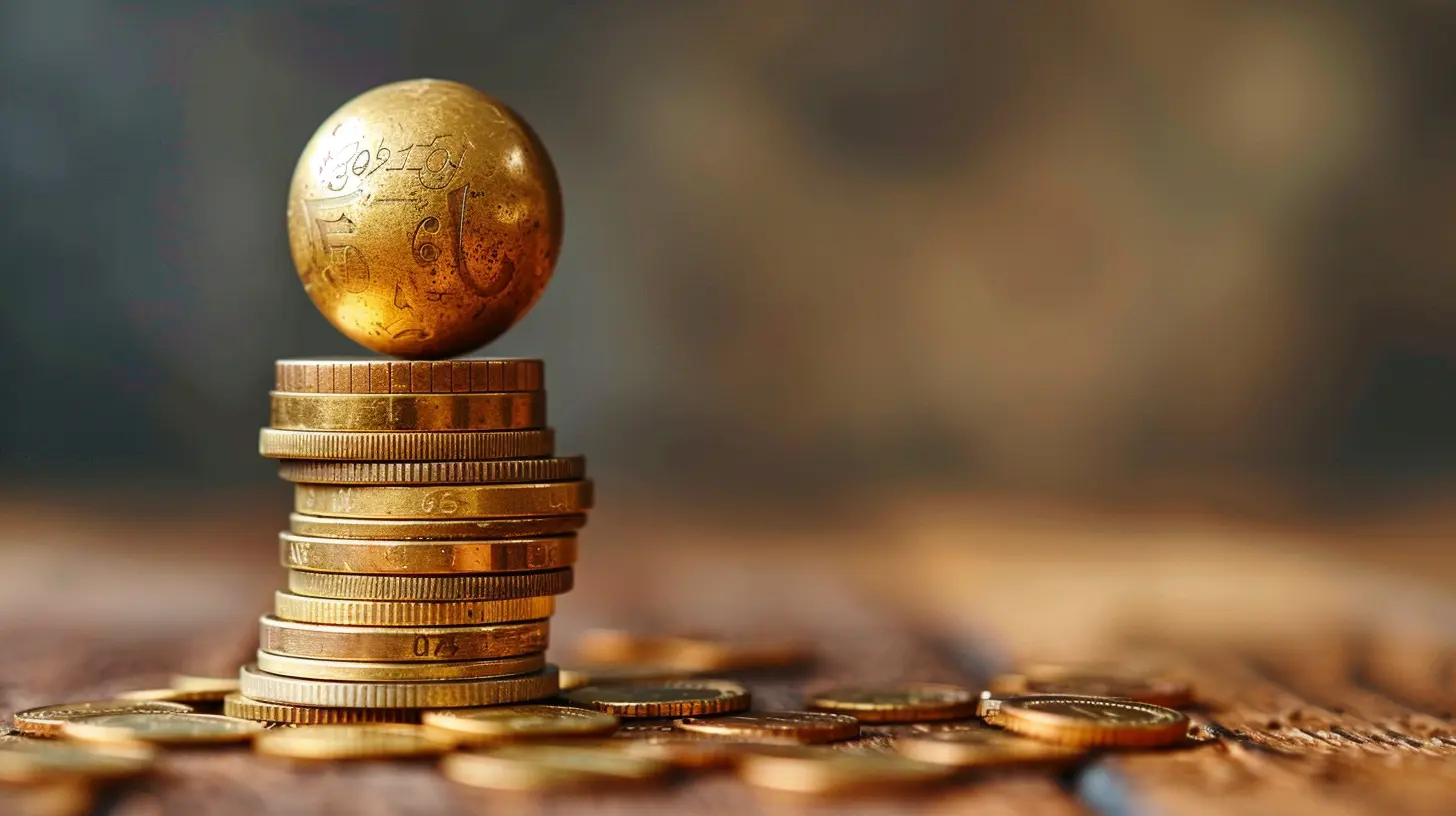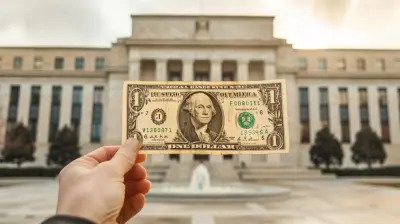Are We Heading Toward Higher Interest Rates? What to Expect
29 October 2025
Let’s be real—when interest rates start creeping up, most people don’t throw a party. Rising rates can hit your wallet, your mortgage, and your investment plans pretty hard. But before we panic and pull our savings out of the bank or postpone that house purchase, let’s take a step back and figure out what’s really going on. Are interest rates actually heading higher? And what does that mean for the average person like you and me?
In this article, we're going to break it all down in simple, human language. No fluff. No complicated jargon. Just straight talk about what rising interest rates mean, why they happen, how they could impact your life, and what you should be doing to stay ahead of the curve.
What Exactly Are Interest Rates, Anyway?
Let’s start with the basics. Interest rates are essentially the cost of borrowing money. Think of them as the price tag on a loan. When rates go up, borrowing money gets more expensive. That means higher payments on things like mortgages, credit cards, auto loans, and even student loans.On the other hand, higher interest rates also mean better returns for savers. So it’s not all bad news—it really depends on where you stand financially.
Why Do Interest Rates Go Up in the First Place?
Great question. The Federal Reserve (aka "the Fed") is in charge of setting a key interest rate called the federal funds rate. This rate influences all kinds of other rates in the financial system.So why would the Fed raise rates? Usually, it’s trying to:
- Tame inflation – When prices are rising too fast, the Fed raises rates to cool off spending.
- Slow down an overheated economy – Too much demand can push prices up. Higher rates can slow it down.
- Maintain financial stability – Sometimes, they need to keep things balanced by making borrowing less attractive.
Raising interest rates is basically the Fed saying, “Hey, everybody, let’s pump the brakes a bit.”
Are We REALLY Heading Toward Higher Interest Rates?
Now here’s the hot question everyone's asking. The answer? All signs point to yes—at least in the short to medium term.Over the past few years, inflation has ticked up faster than many expected. From groceries to gas, everything suddenly costs more. So, the Fed responded by hiking rates to combat inflation and bring it back down to its 2% target. Even though inflation is slowly cooling off, it hasn’t dropped fast enough for the Fed to fully let go of its rate-raising strategy.
The Economic Signals Aren’t Subtle
Here are a few indicators that we might not have seen the last of higher rates:- Stubborn Inflation: Even though it's down from its peak, it's still higher than the Fed wants.
- Strong Labor Market: Low unemployment means people are spending, which drives up demand and, you guessed it, prices.
- Global Uncertainty: Events like geopolitical tensions or oil supply disruptions can push prices up too.
Put simply, the economic engine is still revving pretty high, and the Fed may keep its foot on the brake (aka higher interest rates) for a while.
What You Can Expect Moving Forward
Okay, let’s say interest rates continue to rise—what then? How does that trickle down to you? Here’s what you should expect across a few key areas:1. 🏠 Mortgage Rates Might Climb Higher
If you're a homeowner or want to be one, this is big. Higher interest rates mean higher mortgage rates, and that can significantly increase monthly payments. A home that was affordable at a 3% rate can suddenly feel out of reach at 7%.If you’re in the market to buy, you might want to lock in a rate sooner rather than later. Already own? If you haven’t refinanced yet, that ship might’ve sailed—unless rates come back down in the future.
2. 💳 Credit Card Debt Gets More Expensive
Credit cards usually have variable interest rates. That means when the Fed raises rates, your card’s APR likely goes up too. Translation? That outstanding balance will cost you even more over time.If you carry a balance each month, this is your wake-up call to pay it down. Even small extra payments can shave off big chunks of interest.
3. 🚗 Auto Loans Could Take a Hit
Car loan rates have also been climbing steadily. That shiny new ride? It’s going to cost more to finance than it did a year or two ago. Combine that with already high car prices, and it’s a double whammy.Consider buying used or negotiating better terms. Or just hold on to your current vehicle a little longer if you can.
4. 🏦 Savings Accounts and CDs Start Looking Good
Here’s the silver lining: Savers finally get a win. For over a decade, interest on savings accounts was practically nonexistent. Now, they’re climbing—high-yield savings accounts and CDs are offering interest rates we haven’t seen in years.If you’ve got cash parked in a checking account earning nothing, it’s time to move some of it to a high-yield option.
5. 📈 Stock Market Volatility
Higher interest rates usually mean one thing for the stock market—volatility. Investors might get jittery because borrowing costs for companies go up, which can affect profits.That doesn’t mean you should panic and sell everything. But it does mean you should brace for a bumpy ride. Diversification and a long-term mindset are key here.
What Steps Should You Take to Prepare?
Okay, we've talked about what’s likely to happen. Now let’s focus on what you can do so you’re not caught off guard.✅ Pay Down High-Interest Debt
This is priority number one. The higher the interest rate on your debt, the more it costs you. Focus on credit cards and personal loans first.✅ Reassess Your Budget
If borrowing becomes more expensive, you might have to curb some spending. Review your current expenses and identify areas to cut back on.✅ Build or Strengthen Your Emergency Fund
Having a cash cushion is more important than ever. One unexpected expense during a high-interest environment can do serious damage. Aim for 3–6 months of expenses saved up.✅ Diversify Your Investments
Markets hate uncertainty, and rising rates bring plenty of it. Make sure your investment portfolio is balanced and not overly reliant on risky assets.✅ Lock in Fixed Rates Where Possible
If you're taking out a loan, go for a fixed interest rate rather than a variable one. It might cost a bit more upfront, but it gives you predictability and peace of mind.Will Interest Rates Ever Come Down Again?
Here's the thing—interest rates go in cycles. They rise, and eventually, they fall. The Fed isn’t trying to make life harder for you; it’s trying to stabilize the economy. Once inflation is under control and the economy cools to a sustainable pace, there’s a good chance we’ll see rates come down again.But how long that takes? That’s hard to say. Could be a year, could be longer. That’s why planning and flexibility are your best friends right now.
Final Thoughts: Don’t Panic, Just Prepare
If you’re feeling overwhelmed, that’s totally normal. Rising interest rates affect so many parts of our financial lives, and it can feel like everything’s getting more expensive all at once. But remember, it’s not the end of the world—it’s just a new phase of the economic cycle.Now is the time to be proactive, not reactive. Get to know your financial situation inside and out. Make a plan. Adapt. With a little preparation and a lot of awareness, you’ll be just fine.
Heck, you might even come out ahead.
TL;DR (Too Long; Didn’t Read)
- Interest rates are rising due to inflation and an overheated economy.- Expect higher costs for mortgages, credit cards, auto loans, and other variable-rate debts.
- Savers benefit from better interest rates on savings accounts and CDs.
- The stock market may get rocky.
- Start paying off high-interest debt, save more, and be strategic about your investments.
- Rates will eventually come back down—but don’t bank on it happening soon.
all images in this post were generated using AI tools
Category:
Interest RatesAuthor:

Yasmin McGee
Discussion
rate this article
1 comments
Peyton McGuire
Great article! Understanding the potential for higher interest rates is crucial for financial planning. Staying informed and proactive will help readers navigate their decisions effectively. Keep up the insightful work!
November 8, 2025 at 12:03 PM

Yasmin McGee
Thank you for your kind words! I'm glad you found the article helpful for your financial planning. Stay informed!


